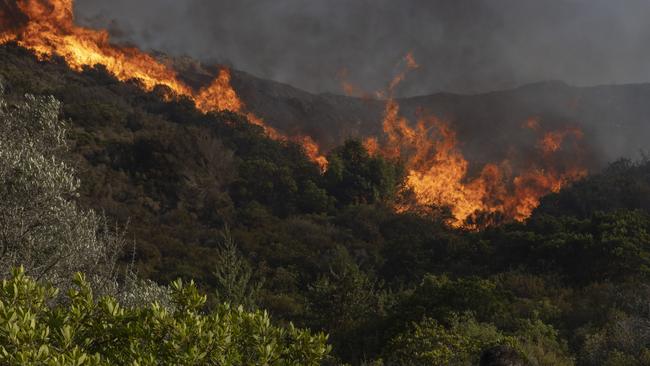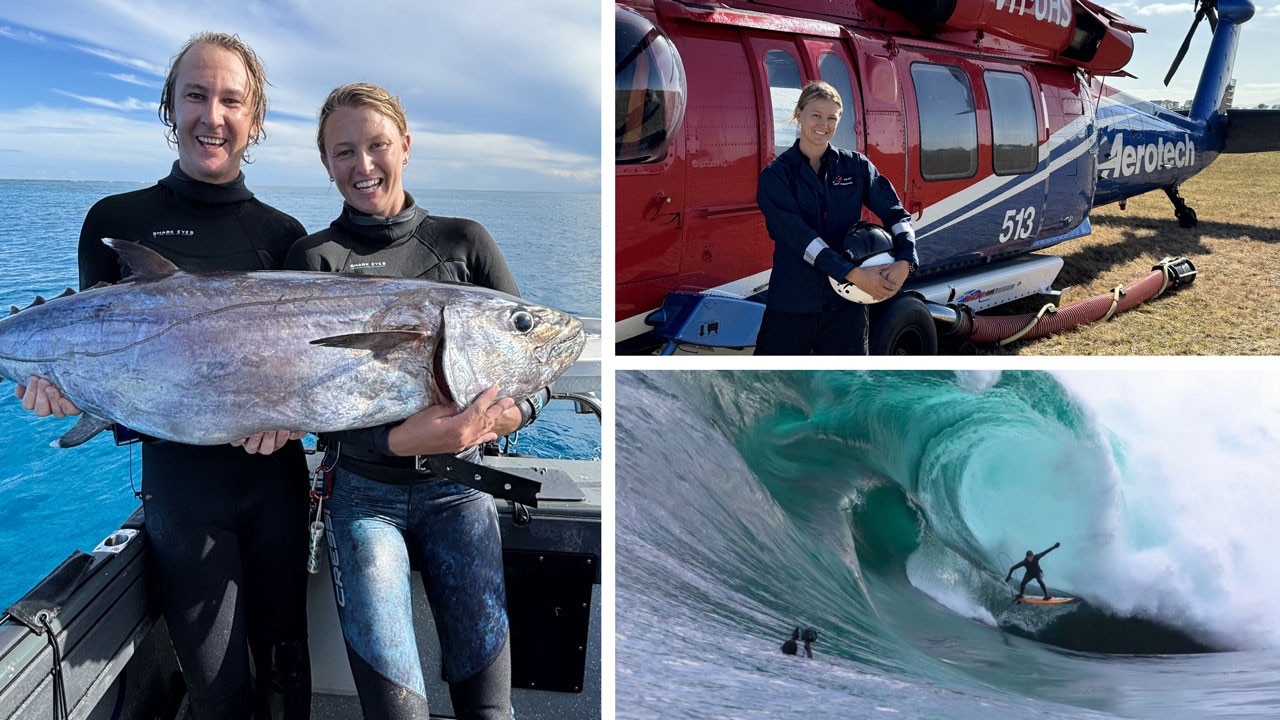Will the aliens even get here before the end of the world?
Last week a US whistleblower said alien remains existed in the US – but David Penberthy says threats from out of this world aren’t the problem.

Opinion
Don't miss out on the headlines from Opinion. Followed categories will be added to My News.
Here’s a cheery topic to think about over breakfast on a Sunday morning. When and how will the world come to an end?
Will it start with nuclear war in eastern Europe or over the South China Sea? Maybe artificial intelligence will kill us off via a smart weapons system that’s so intelligent it eliminates its creators to avoid ever being shut down?
Given what we heard from a US whistleblower last week about the discovery of “biological remains” of an alien life form now housed at a secret location in the United States, perhaps an invasion of ETs travelling by UFOs is on the cards?
Having spoken this week to people fleeing the Greek island of Rhodes and in the American desert state of Arizona, the most likely scenario may be that the world simply burns to a crisp while we are worrying about these other scenarios.
If you really want to depress yourself, read any of the mainstream, credible peer-reviewed science about the state of the planet.
I am not talking here about the offerings of my more hairy-chested columnist colleagues who laugh in the face of the science and say the whole climate change thing is a hoax and a myth.
None of these people are scientists. Neither am I. That’s why I’m suggesting that we concentrate on reading what the scientists have got to say, even though none of it is good.

Don’t worry, I’m not about to go full Extinction Rebellion on you. You won’t find me in the middle of the road with my bum glued to the bitumen on Monday as you’re trying to drive to the office. I can’t see the value in passing climate emergency motions or any of that gesturing nonsense. Equally though, when you read what the scientists say, it’s a struggle to look at the news out of Greece, Italy, Spain and the United States, and credibly deny that we are living through a climate emergency.
In the hands of the hysterical, overstatement is the name of the game. We hear the word “unprecedented” a lot to describe modern-day weather events, such as the month of 40C-plus heat the people of Arizona have just endured, or Australia’s many bushfires, or the floods along the Murray last year. Stinking hot weather is not unprecedented. Ice caps melting is not unprecedented. Floods are not unprecedented. However, science tells us that what is unprecedented is the frequency with which all this is happening.
Back in 2019 we had our hottest day ever recorded in Adelaide. It got to 46.6C. It was a moment which gave pause to anyone who might shrug their shoulders at the prospect of average temperatures edging up by a degree or two, as if it’s no big deal.
Now, Adelaide has clearly always been hot. It is at the bottom of a desert and when you get a northerly blowing in January or February it’s not uncommon for the mercury to exceed 40C, sometimes reaching 42C or 43C. Having lived through several 43C days I can tell you there’s a massive difference between 43C and 46.6C. Those extra few degrees felt like a kind of hell.
I have an avocado tree in my front yard. It is – or was – a majestic and well-shaped specimen that’s probably 30 years old and stands around 6m. It is a species that’s designed to cop heat but the heat that day nuked one-third of the tree. It was almost like the tree was thinking in order to survive. It was fully laden with tiny avocados which normally mature in April-May and had around 300 fruits. But on that day, January 24, 2019, it went into survival mode by dropping every single one of its fruits, shedding most of its leaves and one-third of its branches, basically dismantling itself into a smaller and more resilient form. It remains weirdly misshapen, didn’t fruit at all for the next two years, and has only recently started performing, but nowhere near the level it previously did.
I was talking to a gardener friend about what the tree had done. She grows and dries a lot of herbs, and the oven temperature at which she sucks the life out of her herbs to store them in the pantry is just 50C, a few degrees over what my poor old avocado tree was enduring that day. It is a life-ending temperature.
The tree is a handy parable for what our planet was going through. It is more educational than the combined weight of 100 columns by a climate denier.
The latest miserable mainstream missive on all this comes from the University of Copenhagen with a major piece of research about the impact of global warming on the Gulf Stream, which is the current of warmer ocean water that travels from the Gulf of Mexico towards the Atlantic Ocean.
Researchers have found the effects of this warming water are being “smothered” by the increase in melting polar ice from Greenland, with the impact affecting the viability or agriculture and the safety of oceanfront communities along the US’s east coast.
“Rain responsible for growing food for billions of people across India, South America and West Africa would be disrupted, while storms would increase and temperatures would drop in Europe,” news.com.au reported on the study on Thursday of this week.
“The sea level would rise significantly up the eastern coast of North America, and the Amazon rainforest and Antarctic ice sheets would further be endangered.”
The start date for this nightmare scenario – 2025.
In the absence of concerted worldwide action – that is, action that includes real change in high-polluting places like China and India, as opposed to stand-alone gestures such as inner city Australians buying battery-powered cars – we would appear to be completely stuffed.
It’s certainly something to think about before the aliens start arriving in greater numbers, if indeed they do get here first.




